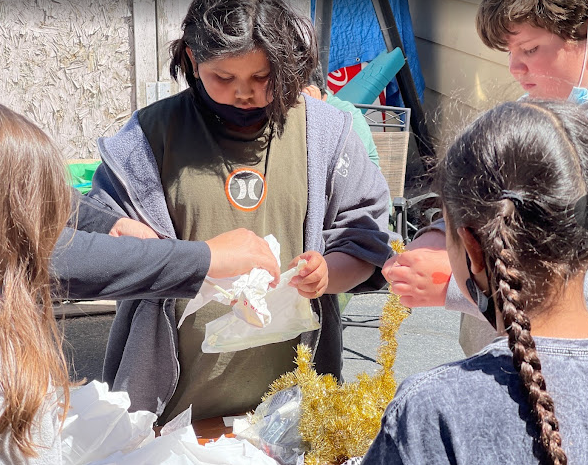
Where are the nation’s most innovative schools, and what are they doing that distinguishes them from the rest of the pack?
The Center for Reinventing Public Education and Transcend, two nonprofit organizations that support innovation in education, has put together The Canopy Project, a comprehensive public database of 251 schools that include district, charter and independent schools and microschools, all with core practices that raise the level of student-centered learning.
The project began in 2019 as a joint effort between Transcend and the Christensen Institute and is fueled by participation from hundreds of organizations and schools.
Last year’s report focused on the increasing number of programs developed for underserved populations who have historically been marginalized, such as students with disabilities. The year before that focused on creative ways of educating students during the challenges posed by the coronavirus pandemic.
A full report on this year’s project won’t be released until this fall, but analysts have already noted the following trends:
- Two out of three schools in the database report that their school leadership is a shared endeavor, relying on the voices of not just a principal or lead educator but also teachers, parents, community members, and even students.
- Schools reported using dozens of innovative practices, but the three most commonly listed as core practices: project-based learning, competency/mastery-based academic progression, and cultural responsiveness.
- 43% of schools that shared their leadership demographics are led by BIPOC-majority leadership teams.
Other findings from the survey of leaders at these innovative schools show that three-quarters of them are focusing on developing a sense of community among students.
About 61% have designed advisories where groups of students meet regularly with adult advisers to set learning goals, reflect on progress, and build relationships. Some report increased mental health supports and train adults to recognize and respond to students who are impacted by traumatic stress, and pair students with an adult in school for regular individualized mentoring.
Almost two-thirds of schools reported the use of self-directed learning. This model allows students to set and pursue learning goals largely without adult supervision. About the same number reported an emphasis on practicality, with students learning topics and skills that directly relate to their lives and the world around them.
The survey also showed that 57% are offering learning beyond academics and college prep through career-focused opportunities such as practice job interviews and apprenticeships, while about half were providing learning though community service.
The report is searchable by state, by type of schools, by innovations employed or by student demographics. A user guide explains how to access and filter the data. The organizers hope it will be useful for policy makers, potential donors, and journalists, but most important, educators and entrepreneurs seeking to boost innovation.
“A redesigned school is far easier to imagine than implement. But too often, pessimism about the potential for change persists because educators, leaders, and families can’t picture what viable alternatives would look like,” wrote Chelsea Waite, senior researcher at CRPE and team leader on The Canopy Project, who introduced this year’s project in The 74.
“Amplifying the efforts of hundreds of schools designed to be equitable and student-centered is an exercise in optimism. Canopy offers hope that all kinds of schools can deliver on what students and families value most.”


